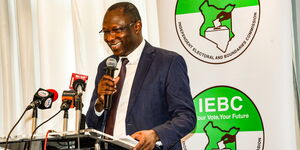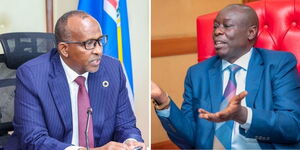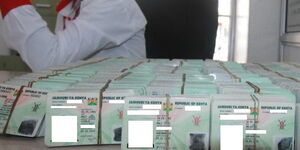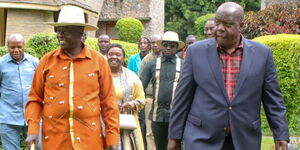South Sudan's main opposition political outfit, the Sudan People's Liberation Movement Opposition (SPLM-IO) led by Riek Machar on Tuesday announced it had withdrawn from the ongoing peace talks in Kenya dubbed the Tumaini Peace Initiative.
Machar in a statement argued that the talks were overstepping the mandate and undermining South Sudan's existing revitalised peace agreement and sovereignty.
"In light of the mentioned development, the SPLM/SPLA (IO) rejects the initiative and declares its withdrawal from the Tumaini Initiative as it has deviated from the intended purpose of being an Annex to R-ARCSS and not a stand-alone agreement," he announced
According to the party, the talks being mediated by President William Ruto and some of the protocols introduced by the talks reportedly included parallel institutions which duplicated R-ARCSS provisions and enchroached on South Sudan's national laws.
Some of the protocols revolve around, security, ceasefire instruments, humanitarian access, trust building, land disputes, communal violence, arms proliferation and the role of the guarantors.
Machar who served as the First Vice President of South Sudan, argued that the protocols in question established institutions which already exist following the signing of the peace agreement struck in September 2018.
"The protocols clearly breach the R-ARCSS and undermine the ongoing peace implementation processes, " he added.
Additionally, the opposition party lamented that the initiative had assumed extra roles which should in the party's opinion, only be carried out by the South Sudanese government.
Some of these functions include; funding, coordinating, supervising and monitoring peace implementation.
Machar's party also argued the proposed Security Sector Reforms and Oversight Commission and National Leadership Council would also undermine similar mechanisms established by the 2018 agreement.
The Machar-led party argued that the council would have excessive powers which would overrule decisions of the presidency, cabinet, legislative organs and the National Security Council.
"The initiative has arrogated to itself many roles, including being a funder, a supervisor, a coordinator, a convener of a donor conference, a fund manager, a monitor of implementation, a guarantor and governing authority. Therefore, the Tumaini Initiative undermines the sovereignty of the Republic of South Sudan," he concluded.












